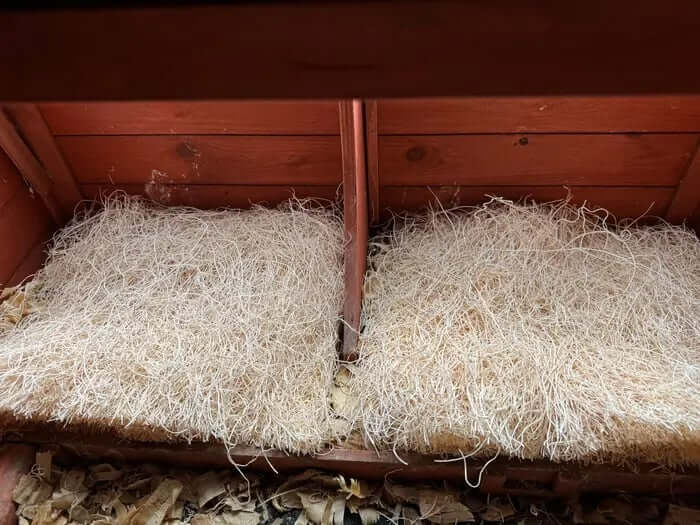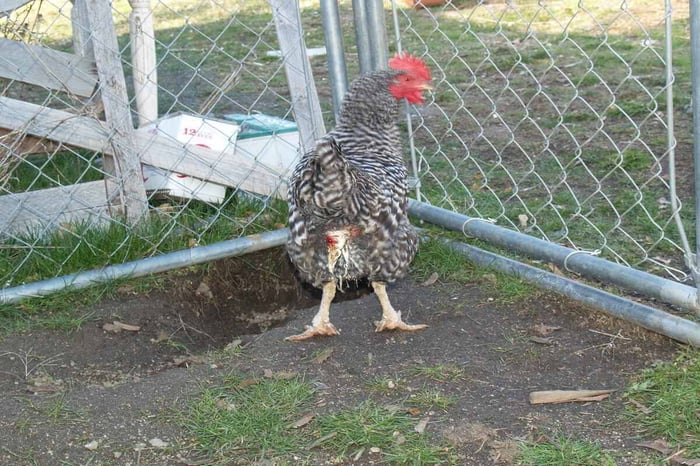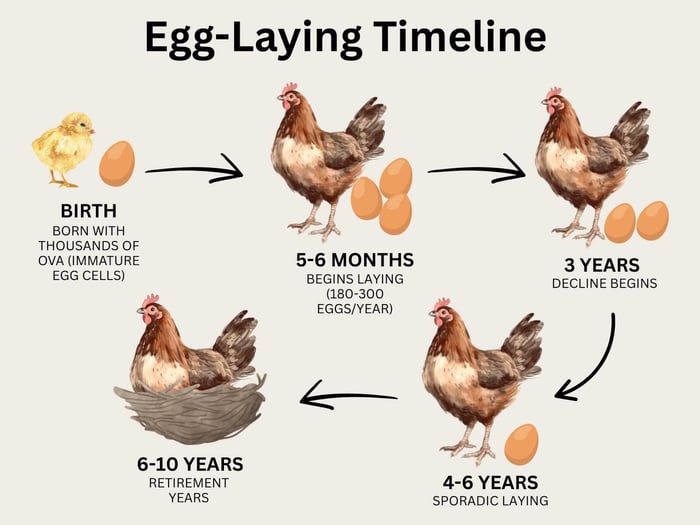Table of Contents
- How Long Do Fresh Eggs Last? A Complete Guide to Safe Storage
- Understanding the Bloom: Nature’s Egg Protector
- How Long Do Fresh Eggs Last at Room Temperature?
- How Long Do Fresh Eggs Last in the Fridge?
- Should You Wash Eggs Before Storing?
- How to Store Fresh Eggs Without Refrigeration (Long-Term)
- Best Containers for Egg Storage
- How to Tell If a Fresh Egg Is Still Good
- Egg Storage in Summer: Mistakes to Avoid
- Final Thoughts: So, How Long Do Fresh Eggs Last?
- FAQs
How Long Do Fresh Eggs Last? A Complete Guide to Safe Storage
If you’re wondering how long do fresh eggs last, especially in the warmer months, you're not alone. Summer is prime time for egg baskets to overflow. With longer days and more sunshine, your hens are likely laying at their peak—but that also means you’re collecting more eggs than usual. Backyard chicken keepers often ask whether to refrigerate eggs, how long unwashed eggs last, and what methods are best for safe, long-term storage.
This blog covers all things egg storage—from bloom basics to fridge facts, room-temperature storage, preservation methods, and safety tips. Whether you gather one egg a day or a dozen, learning how long do fresh eggs last can make a big difference in taste, texture, and shelf life.
Understanding the Bloom: Nature’s Egg Protector
Before diving into storage methods, it’s important to understand one key concept: the bloom.
When a hen lays an egg, it comes out with a protective coating known as the bloom, or cuticle. This nearly invisible layer seals the porous shell, preventing bacteria from entering and moisture from escaping. It’s an incredible natural defense system that keeps the egg safe without refrigeration—at least for a while.
However, once the bloom is washed off, that egg becomes far more vulnerable to contamination and spoilage. That’s why how and when you clean your eggs directly affects how long fresh eggs last.
How Long Do Fresh Eggs Last at Room Temperature?
If your eggs are unwashed and the bloom is intact, you can store them at room temperature for up to 2–3 weeks safely. That’s how eggs are stored and sold in many parts of the world.
Still, there are a few important caveats:
Keep them in a cool, dry location (ideally under 75°F).
Avoid temperature swings.
Don’t let them sit outside in the coop or nesting box for long in high heat.
Once the egg’s internal temperature rises, it can begin to sweat. That moisture creates an entry point for bacteria—especially in summer when flies and humidity are present.
Tip: Collect eggs at least once a day in warm weather, and twice daily if your temperatures are consistently in the 80s or 90s.
How Long Do Fresh Eggs Last in the Fridge?
If you wash your eggs—or they arrive particularly dirty and require washing—you should refrigerate them immediately.
Without the bloom, the egg’s natural protection is gone, and bacteria like salmonella can pass through the shell. Washed eggs need a stable cold temperature to stay fresh and safe.
The USDA recommends that washed eggs be kept at or below 40°F and not left unrefrigerated for more than two hours.
Properly refrigerated eggs can last a long time—even up to 3 months—if stored in the right conditions. While store-bought eggs typically have a sell-by date of 4–6 weeks, fresh backyard eggs often outlast that window, especially when collected and stored with care.
Should You Wash Eggs Before Storing?
Here’s the general rule:
If the egg is clean, don’t wash it. Leave the bloom intact and store it unrefrigerated.
If the egg is dirty or has manure on it, you should wash it and store it in the refrigerator.
When washing, use warm water (warmer than the egg) to prevent the egg from drawing in bacteria. A gentle scrub with a brush or cloth is all you need. Avoid using soaps or chemicals.
If you know you'll be storing your eggs long-term or giving them away, it’s best to wash and refrigerate for safety. And remember: how long do fresh eggs last depends greatly on whether the bloom is intact.
How to Store Fresh Eggs Without Refrigeration (Long-Term)
Planning to stockpile eggs or save some for when production slows down? There are a few traditional preservation methods that can extend how long fresh eggs last without refrigeration—though each has pros and cons.
1. Water Glassing
An old-fashioned preservation technique using pickling lime and water. When submerged in this mixture, clean, unwashed eggs can last up to 12 months.
Learn how to water glass your eggs from Farmhouse on Boone: https://www.farmhouseonboone.com/water-glassing-eggs/
2. Mineral Oil Coating
Coating eggs with a thin layer of food-grade mineral oil mimics the bloom and helps keep bacteria out. Coat unwashed eggs and store them in a cool pantry or root cellar. Flip the eggs every few weeks to prevent the yolk from settling too much.
Learn how to mineral oil coat your eggs from Pampered Housewives: https://prepared-housewives.com/preserve-eggs-with-mineral-oil/
3. Freezing (Yes, You Can!)
While you can’t freeze whole eggs in their shells, you can:
Crack and whisk them
Pour into ice cube trays or containers
Freeze and use later in baking or scrambled dishes
You can also freeze egg whites and yolks separately, though yolks may need a bit of salt or sugar mixed in to preserve texture.
Check out how to freeze eggs for storage from The National Center for Home Food Preservation:
https://nchfp.uga.edu/how/freeze/dairy-products/freezing-eggs/
Best Containers for Egg Storage
Choosing the right container can help keep eggs safe, organized, and fresh:
Cardboard cartons: Allow airflow and keep eggs dry, but absorb moisture over time.
Plastic or glass containers: Easy to clean and reuse but may trap moisture.
Egg skelters: Decorative and functional for room temp storage; always use oldest eggs first.
Fridge-safe cartons: Ensure they are food-safe and not exposed to fridge door heat.
How to Tell If a Fresh Egg Is Still Good
Not sure how long that egg’s been sitting around? While the float test is a common method often shared in chicken-keeping circles, it's not always a reliable indicator of freshness or safety. A floating egg isn’t necessarily rotten—and a sinking egg isn’t always safe.
Instead, try this two-step approach:
1. Do a visual and sniff test:Crack the egg into a separate bowl before using. A fresh egg will have a firm, rounded yolk and thick whites that stay close to the yolk. If it looks off-color, smells sulfuric or foul, or has any odd texture—toss it.
2. Keep track of your eggs:The best way to ensure eggs are still good is to label your cartons with the collection date and use the oldest ones first. If you’re storing a large amount, consider keeping a log.
Image Suggestion: Photo of a fresh egg cracked in a bowl next to an older one for comparison.
Egg Storage in Summer: Mistakes to Avoid
Even the most seasoned chicken keepers can make egg storage mistakes in the summer heat. Here’s what to watch for:
Leaving eggs in the nesting box too long
Washing and then forgetting to refrigerate
Storing dirty eggs at room temp
Allowing eggs to sit in direct sunlight
Putting eggs in a fridge door where temps vary too much
Knowing how long do fresh eggs last, and what affects their shelf life, helps prevent waste and food safety issues.
Final Thoughts: So, How Long Do Fresh Eggs Last?
Understanding how long do fresh eggs last is one of the most important parts of being a backyard chicken keeper. While unwashed eggs can last at room temperature for a couple of weeks, the summer heat makes it more important to collect regularly, avoid contamination, and refrigerate when needed.
Whether you use traditional water glassing or a modern fridge setup, your eggs can stay fresh, safe, and delicious for weeks (or months) with the right care. And when in doubt? Crack it into a bowl and give it a sniff—your nose rarely lies.
FAQs
How long do fresh eggs last at room temperature?
Unwashed eggs with the bloom intact can last up to 2–3 weeks at room temperature, as long as they’re stored in a cool, dry place away from direct sunlight.
How long do fresh eggs last in the fridge?
When refrigerated properly, fresh eggs can last up to 3 months. Washed eggs should always be refrigerated and used within 2–3 months for best quality.
Do I need to wash my eggs before storing them?
Only if they’re dirty. Clean eggs can be stored unwashed at room temperature, but dirty eggs should be washed with warm water and stored in the fridge.
What’s the best way to know if a fresh egg is still good?
The most reliable way is to crack it into a separate bowl and inspect the yolk and whites. A fresh egg will have a rounded yolk and firm, cohesive whites. Any bad odor or off appearance means it should be discarded.
Can I preserve eggs for long-term storage without refrigeration?
Yes! Techniques like water glassing and mineral oil coating can help unwashed eggs last for months without refrigeration when done properly.




